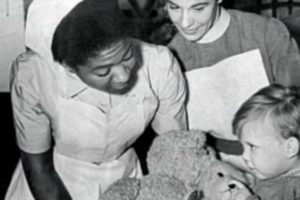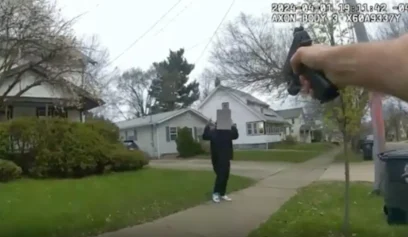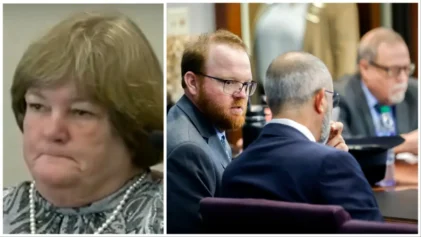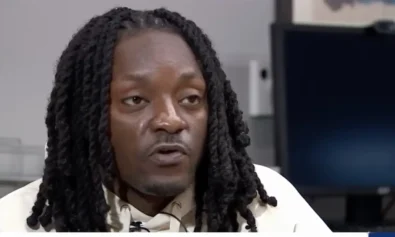
THE DOCUMENTARY REVEALS THE UNTOLD STORY OF HOW THOUSANDS OF CARIBBEAN WOMEN ANSWERED THE CALL FROM ‘THE MOTHER COUNTRY’ TO COME AND HELP BUILD BRITAIN’S NATIONAL HEALTH SERVICE.
LONDON, England, Wednesday November 23, 2016 – When the first pictures were released of Britain’s two youngest royals, few people noticed the midwife who had headed the team that brought them into the world.
Standing quietly in the background, Dr Jacqui Dunkley-Bent is a professor of midwifery and living proof that a black woman can rise to the pinnacle of the profession in today’s Britain.
But that was not always the case, a fact graphically illustrated in a new
that airs this week. It charts the history of how thousands of Caribbean women answered the call from ‘the Mother Country’ to come and help build Britain’s National Health Service (NHS).
A great article in today's Mail Weekend supplement on, Black Nurses: The Women Who Saved The NHS #blackandbritish #blacknurses pic.twitter.com/7hhJsj6nY8
— Maroon Productions (@MaroonProds) November 19, 2016
Black Nurses: The Women Who Saved the NHS” is described as an unflinching account of a post-war Britain that had struggled to find enough nurses for its new NHS.
An appeal was launched for women from Commonwealth countries to help fill the gap, and thousands responded, many of them from the Caribbean. But the reception they received was far from welcoming. They were subjected to overt racism and some were even physically abused.
Jean Gay, from Barbados, recalled being attacked by Teddy Boys (young thugs) in a fish and chip shop after her shift.
“I was pushed and kicked in places I didn’t know I possessed,” she said. She only escaped by resorting to poking a finger in one of her attackers’ eyes.
Initially, it wasn’t much better in their professional environment, with some patients even refusing to be treated by them.
“They’d say, ‘Get your dirty black hands off me,’” recalled Allyson Williams, who arrived from Trinidad in 1969.
“I’d hear, ‘You black bitches are all the same.’ We never got any training in how to deal with that. I’d wash my hands and explain I couldn’t wash the blackness off.”
Williams, then 21, was all the more distressed because she’d left a “comfortable middle-class life” back home in Trinidad.
“We had a nice three-bedroom house and I went to the best school in the Caribbean, where I’d learned about British history. I knew all about the Tudor kings and read Shakespeare. I jumped at the chance to see this country for myself,” she explained.
Read more here


